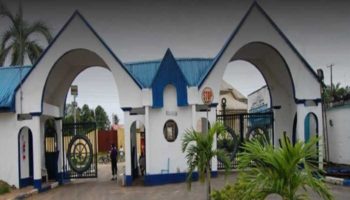
That the Maritime Academy of Nigerian, Oron has been in gradual deterioration for many years is no news. That the institution has lost its glory and can no longer fulfill the mandate for its establishment is no longer a developing story; it is now a national embarrassment. What else can be more damning than having a specialised academic institution with 80% of staff performing non-academic functions? Such is obviously no longer an academic institution but a cooperative society. There have been series of reports detailing the extent of decline in the foremost maritime college in Nigeria. The level of dilapidation is so pathetic that the institution has practically lost every semblance of a specialised tertiary institution. Chief Adebayo Sarumi was succinct when he said the school has been reduced from a federal government establishment to a local government primary school.The school was once a citadel for breeding the best minds in the nation’s maritime industry;but now it is an institution for training artisans and okadariders with maritime certifications.
It was this state of affairs that prompted a coordinated call on the federal government to pay urgent attention to the deterioration in the school. One would have expected the government to immediately swing into action and make declarations that would revive the school and restore it to its glorious days. However, in the typical Nigerian style, the government through the Minister of Tranport, Rt. Hon. RotimiAmaechi chose, in his wisdom, to set up a six-man Interim Management Committee, headed by Chief Adebayo Sarumi to restructure the institution. This was supposedly in line with the report of the same committee earlier set up in January 2017 toadvise the government on the best way to restructure and reposition the academy. Now the advisory committee cum interim management committee has finished all its assignment with final report submitted to the government.
It was clear from the outset that what is required of the government is not the constitution of another committee to ascertain what is already known to the public. The deterioration at the academy is too massive that even the visually impaired can discern its notoriety. Commendably, the committee submitted its final report on March 1, 2018 to the minister. Details of the report have not been made open to the public. However, the chairman of the committee stated that the academic standard of the Maritime Academy of Nigeria, Oron was below standard and there was need to properly train qualified Seafarers in line with world standard. He also stated that the government needs to urgently address the manpower structure that favours non-academic staff mostly employed from the host community. This has only corroborated the agony of observers in the past months. A specialised institution should not be run like another poverty alleviation programme. It is first of all an academic institution for training and re-training of maritime workers, before any other social responsibility purpose.
In the usual rhetorical manner, the minister, represented by the Permanent Secretary, SabiuZakari praised the commitment of the committee and promised to present the report to the board of the academy. Whilst we await the next course of action from the government, it is important to note that the longer we wait in restoring this institution, the more backward our maritime industry will be. No industry can progress without adequate manpower.
Now that the report of the committee has unequivocally laid bare the fallen standard of academic activities at the academy, it is up to the government to immediately swing into action without further delay. The minister has promised to implement all the recommendations in the report in order to reposition the academy. As gratifying as that may be, promises are nothing but ordinary statements until fulfilled, especially for government officials in Nigeria. The minister will do well to make the restoration of this academy his legacy after leaving office. Many of the graduates of the school have become unemployable as a result of the substandard training that is rendered in the school. How can a school offer the best of training when it is ill-funded? How can an institution attain its academic mandates when a significant percentage of funds available are spent on remuneration for 80% non-academic staff?
Essentially, the problems are widely known. What is needed is the seriousness and political will to address this backwardness. Let this report not go the way of many other reports that have been confined to the archives against their intended purposes. We commend the committee led by Chief Adebayo Sarumi for their patriotism and timely submission of the report. Before the government completely shifts attention to the newly established Maritime University, please restore Maritime Academy of Nigeria first. It is the right thing to do.